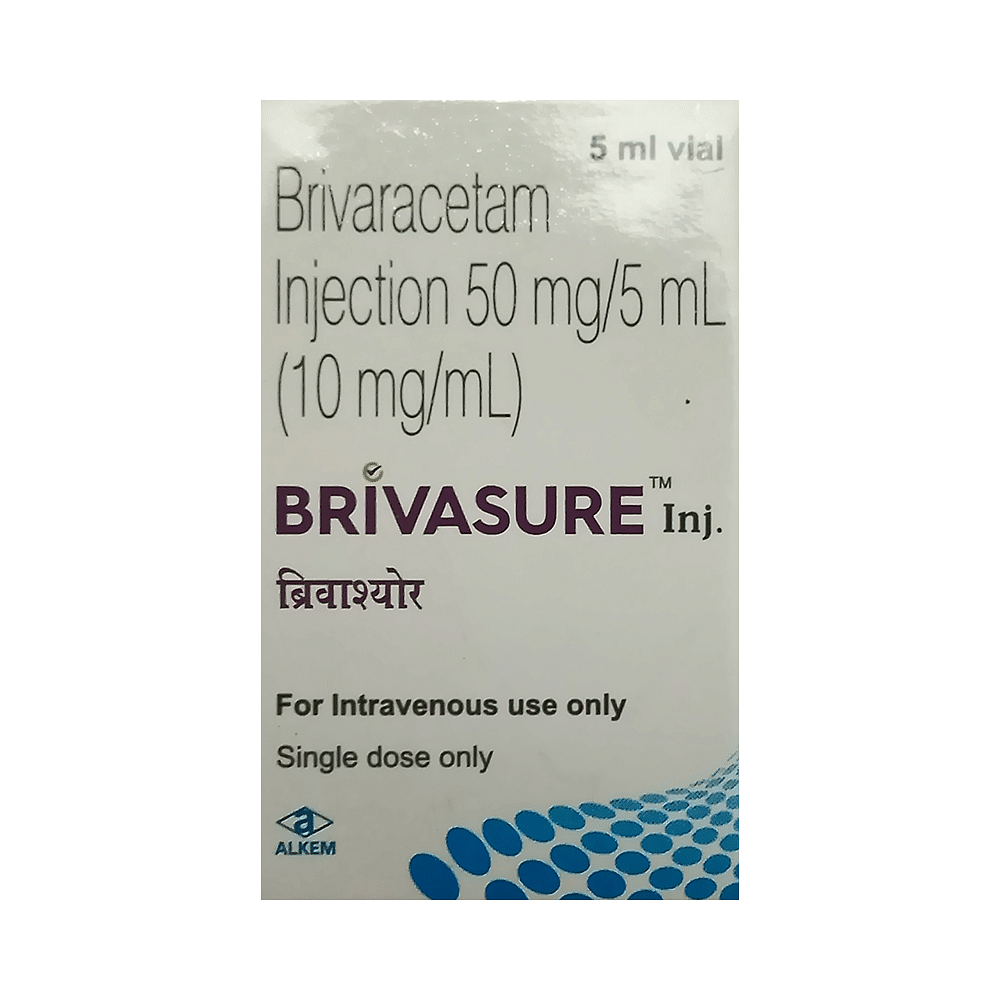
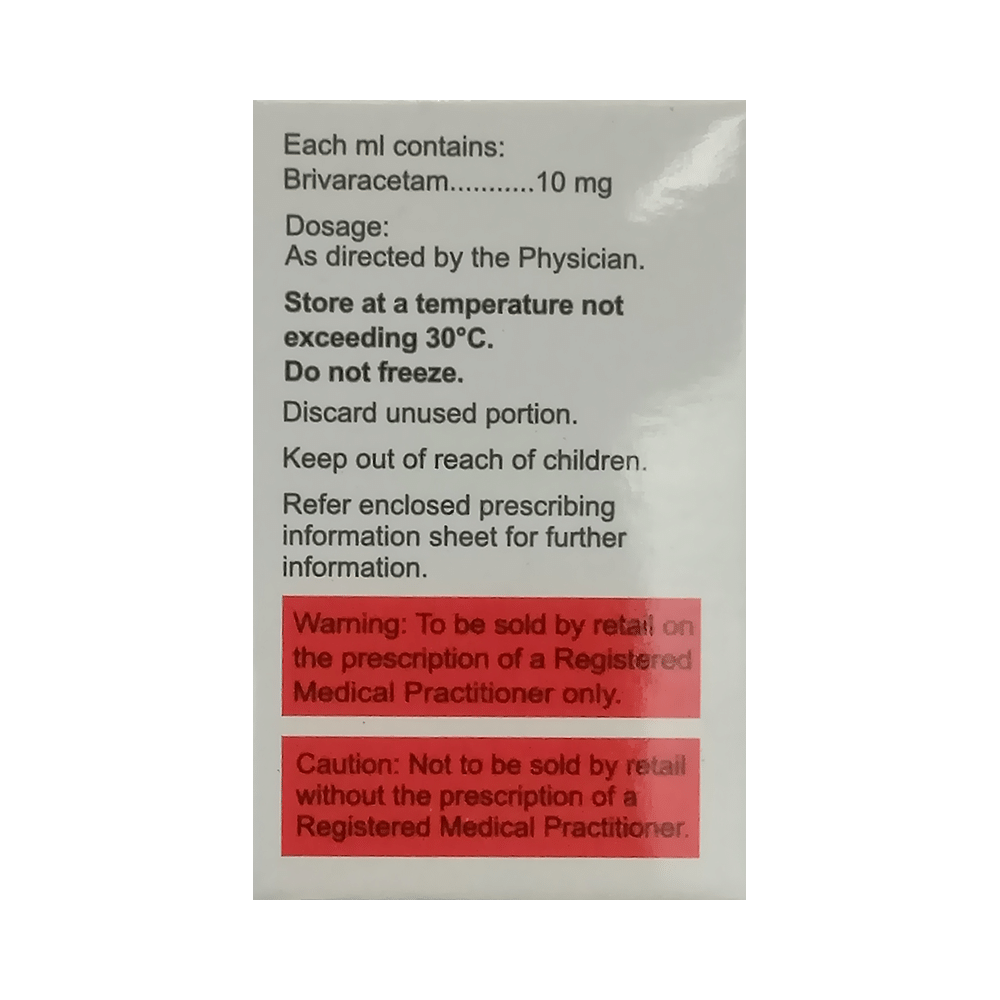
Brivasure Injection
Manufacturer
Alkem Laboratories Ltd
Salt Composition
Brivaracetam (10mg/ml)
Key Information
Short Description
Brivasure Injection is an anti-epileptic medicine used to treat seizures in epilepsy. It can be used by itself to treat adults or along with other medicines to treat adults and children.
Dosage Form
Injection
Introduction
Brivasure Injection suppresses the abnormal electrical activity in the brain. You can take it with or without food but try to take it at the same time each day to get the most benefit. The dose will depend on your condition and how you respond to the medicine. Your doctor will advise the right dose for you. It is generally advised as a long-term treatment. You should continue taking it for as long as your doctor has told you to even if you feel well. If you stop or miss doses your seizures could get worse. It may take several months to come off it safely. It is advisable not to change the brand of medication without doctor consultation and always keep a stock of medicine with you.
Directions for Use
Your doctor or nurse will give you this medicine. Kindly do not self-administer.
Safety Information
Side Effects
sleepiness loss of appetite stomach pain diarrhea aggressive or abnormal behavior depression insomnia dizziness problems with balance stomach pain rash
Alcohol Warning
It is unsafe to consume alcohol with Brivasure Injection.
Breastfeeding Warning
Information regarding the use of Brivasure Injection during breastfeeding is not available. Please consult your doctor.
Pregnancy Warning
Brivasure Injection may be unsafe to use during pregnancy. Although there are limited studies in humans, animal studies have shown harmful effects on the developing baby. Your doctor will weigh the benefits and any potential risks before prescribing it to you. Please consult your doctor.
How it works
Brivasure Injection is an antiepileptic medication. It works by attaching itself to specific sites (SV2A) on the surfaces of nerve cells. This suppresses the abnormal activity of the nerve cells in the brain and prevents the spread of electrical signals that cause seizures.
Quick Tips
Take a healthy diet along with regular exercise. Practice yoga every day. Get enough sleep at nighttime. Limit the use of screen time such as mobile/ laptop. Take your medication on time. Do not drive or use machinery if you feel sleepy or dizzy. Inform your doctor if you have a history of liver disease, kidney disease or drug abuse. Do not stop using Brivasure Injection without talking to your doctor even if you feel better.
Related Medicines

Brivgard Injection

Brevipil Injection
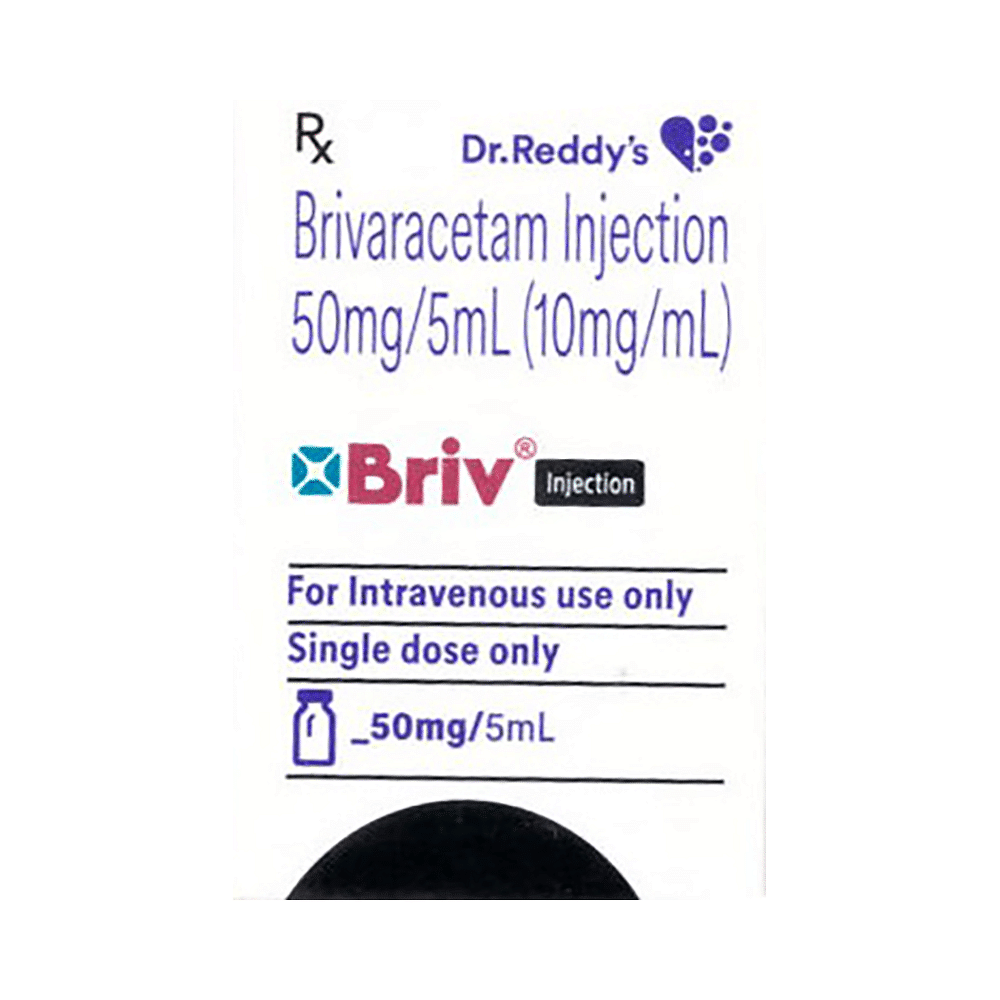
Briv Injection
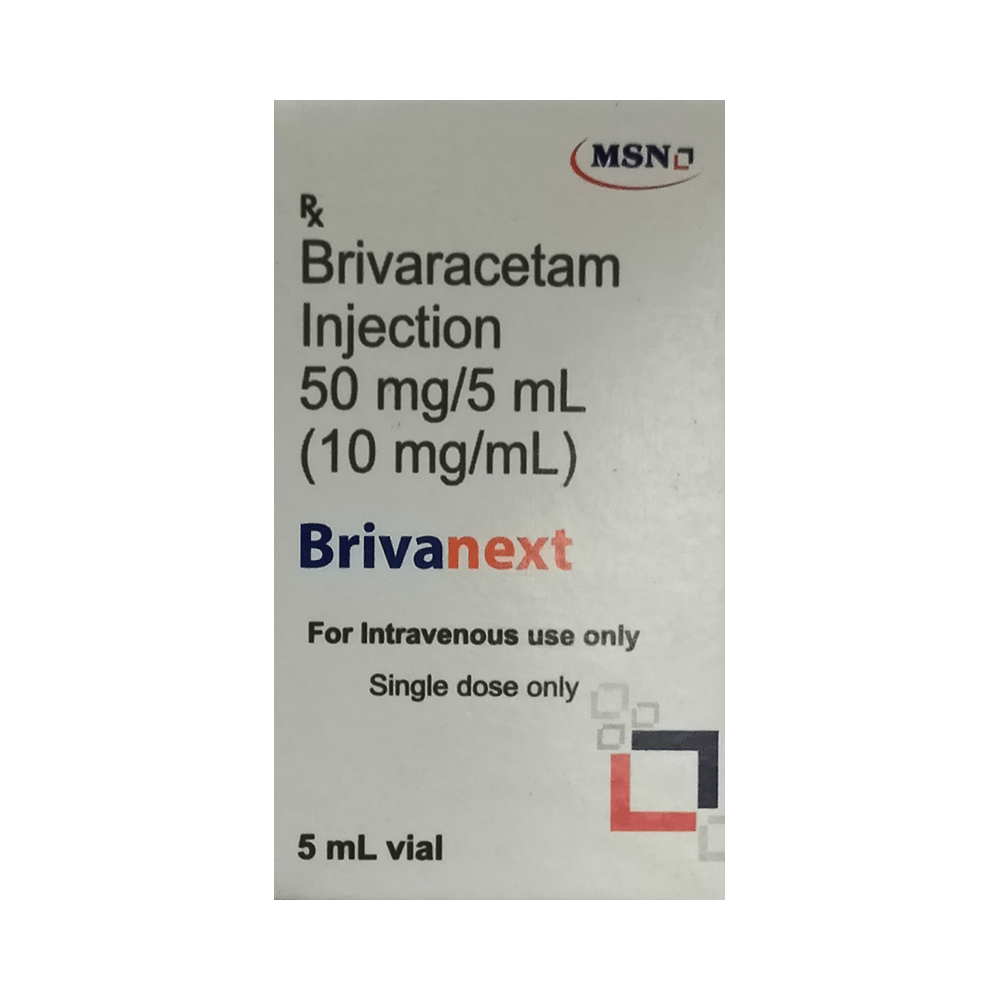
Brivanext Injection
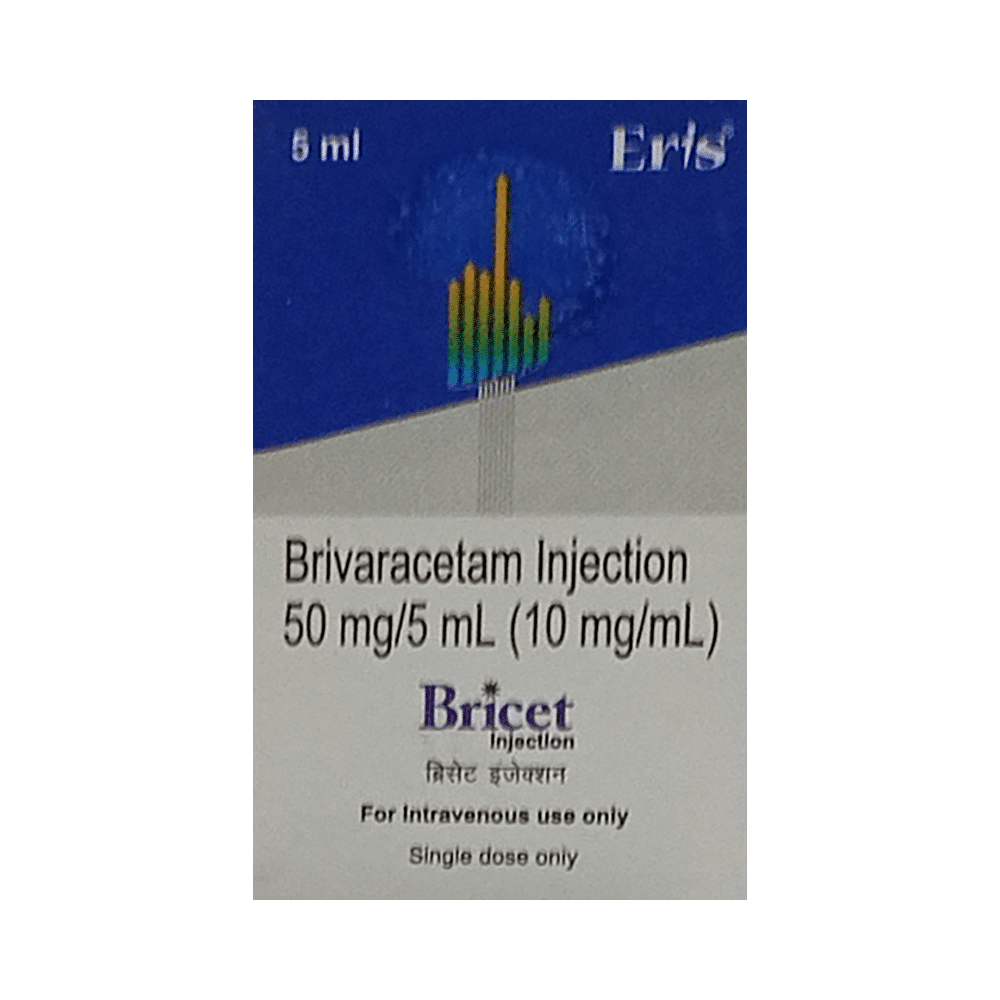
Bricet Injection
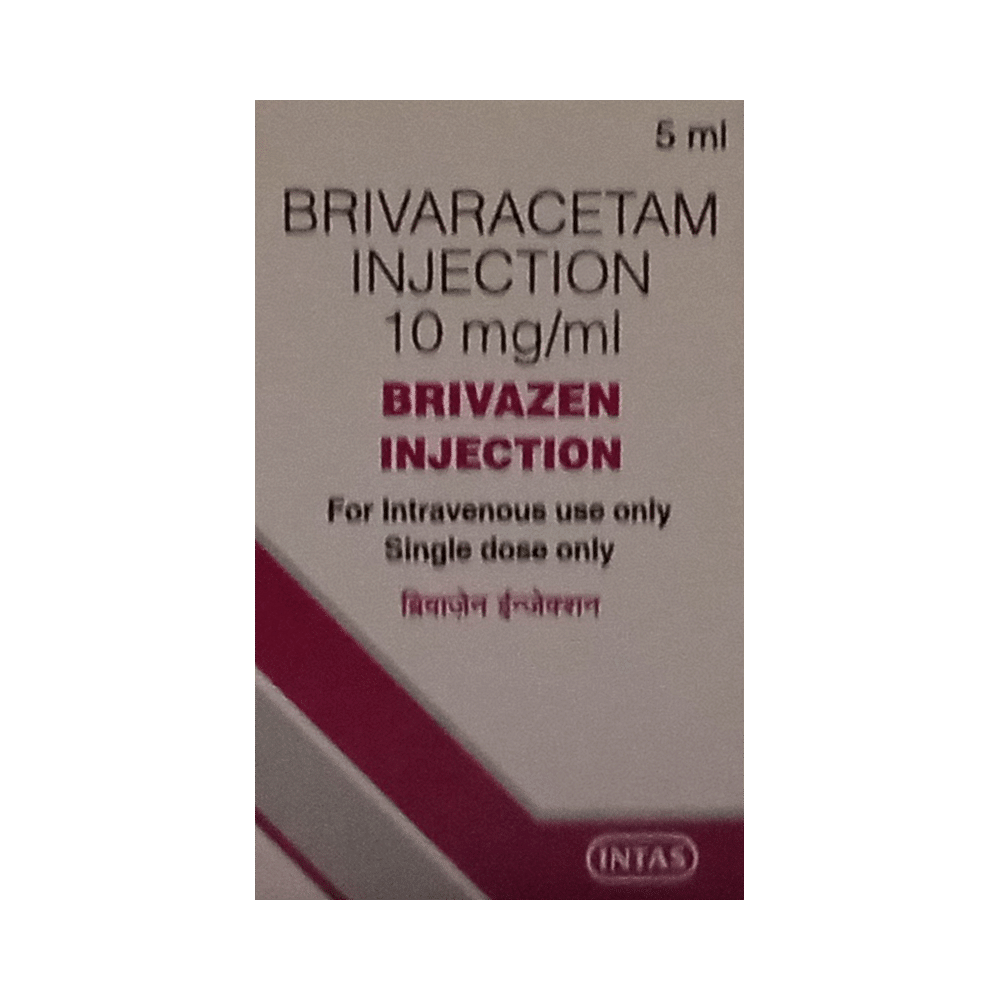
Brivazen Injection
Frequently asked questions
What are the instructions for taking Brivasure Injection?
Brivasure Injection should not be crushed. It is recommended to swallow the whole tablet with a glass of water. You can take Brivasure Injection with or without food, preferably at the same time.
What if I miss a dose of Brivasure Injection?
If you have missed a dose of Brivasure Injection, take it as soon as you remember. However, if it is almost time for your next dose, skip the missed dose and take the next scheduled dose. Avoid doubling the dose to make up for the missed one, as this may increase the risk of side effects.
Can I stop taking Brivasure Injection even if I start feeling better?
No, it is not recommended to stop taking Brivasure Injection abruptly. Discontinuing the medicine suddenly can lead to prolonged seizures that may be challenging to control. Consult your doctor for guidance on gradually discontinuing the medication.
What should I avoid while taking Brivasure Injection?
Brivasure Injection may cause drowsiness, tiredness, dizziness, and balance problems. To minimize risks, it is essential to avoid driving or operating heavy machinery until you know how the medicine affects you. Additionally, avoid consuming alcohol while taking this medication, as it may exacerbate unwanted effects on memory and attention.
What are the potential consequences of accidentally taking more than the recommended dose of Brivasure Injection?
Taking an excessive dose of Brivasure Injection can lead to symptoms such as a spinning sensation, balance disorder, fatigue, nausea, double vision, anxiety, and slow heartbeat. If you experience any of these symptoms, seek immediate medical attention.
How can I monitor early signs of suicidal thoughts and actions while taking Brivasure Injection?
Be vigilant for changes in mood, behaviors, thoughts, or feelings, especially sudden changes. Pay attention to common warning signs that may indicate an increased risk of suicide, such as talking or thinking about hurting yourself or ending your life, withdrawing from friends and family, worsening depression, or becoming preoccupied with death and dying. Never miss a scheduled appointment with your doctor and maintain regular communication between visits.


